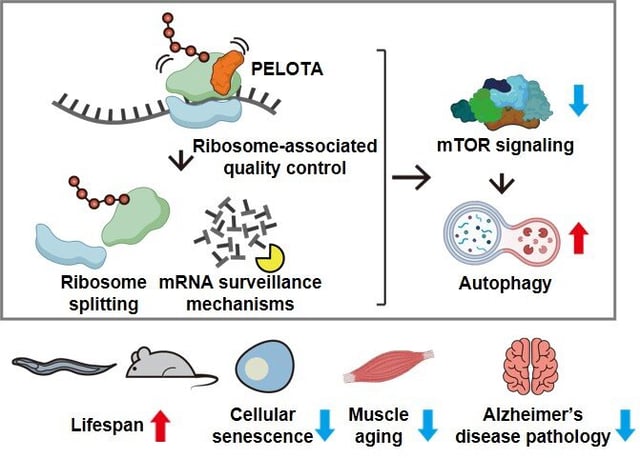Overview
- A KAIST-led team discovered PELOTA, a ribosome-associated protein that removes faulty mRNA, as a central regulator of aging
- Overexpression of PELOTA in Caenorhabditis elegans extended the nematodes’ lifespan, demonstrating its essential role in longevity
- Mechanistic work shows that activating PELOTA inhibits mTOR signaling and induces autophagy, whereas PELOTA deficiency accelerates aging by reversing those processes
- Cross-species analyses confirm a conserved role for PELOTA in mice and human-relevant samples, linking its loss to muscle aging and Alzheimer’s-like features
- Published in PNAS in early August, the peer-reviewed study lays groundwork for therapeutic strategies but requires further validation to translate findings into human treatments

